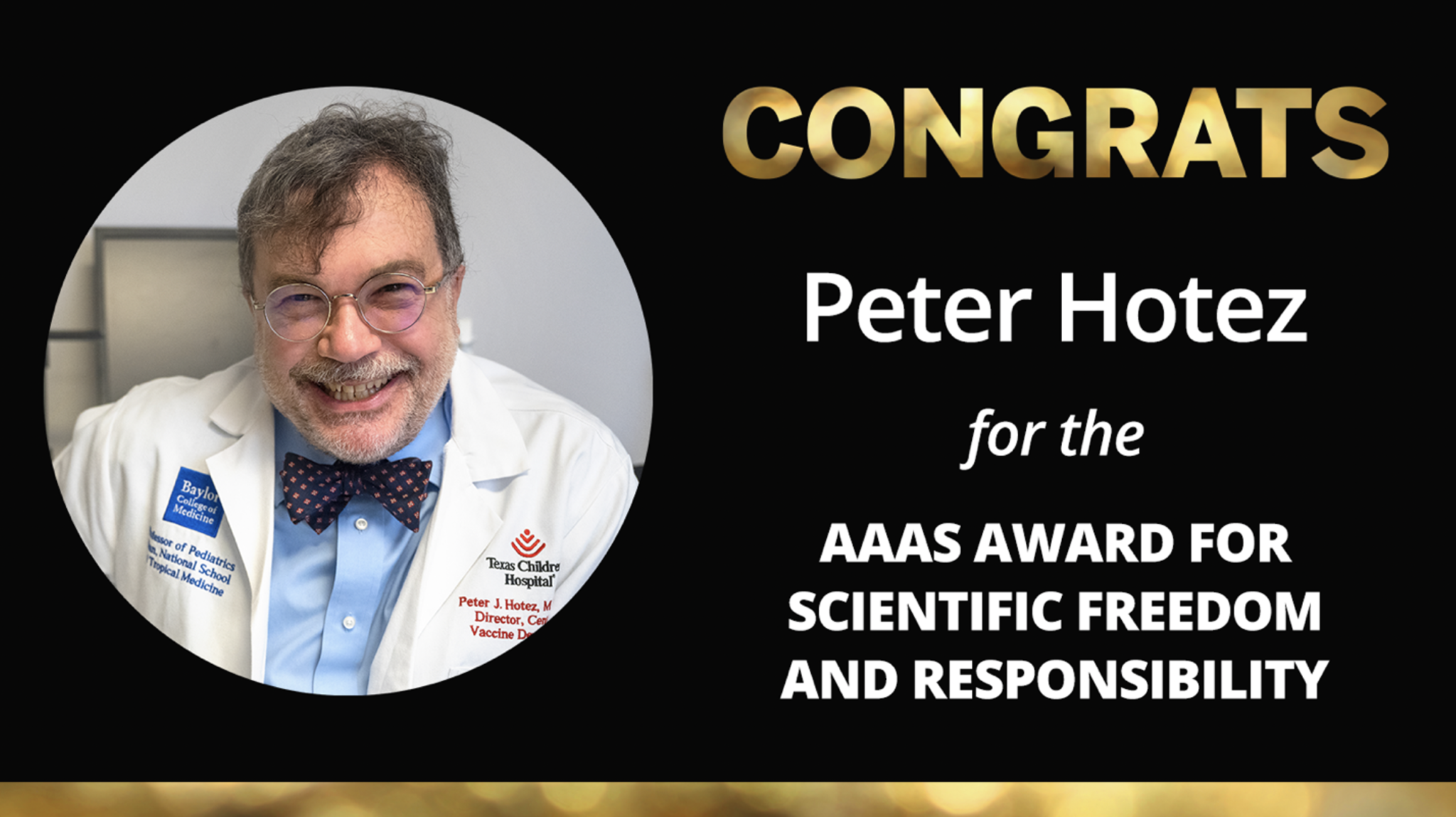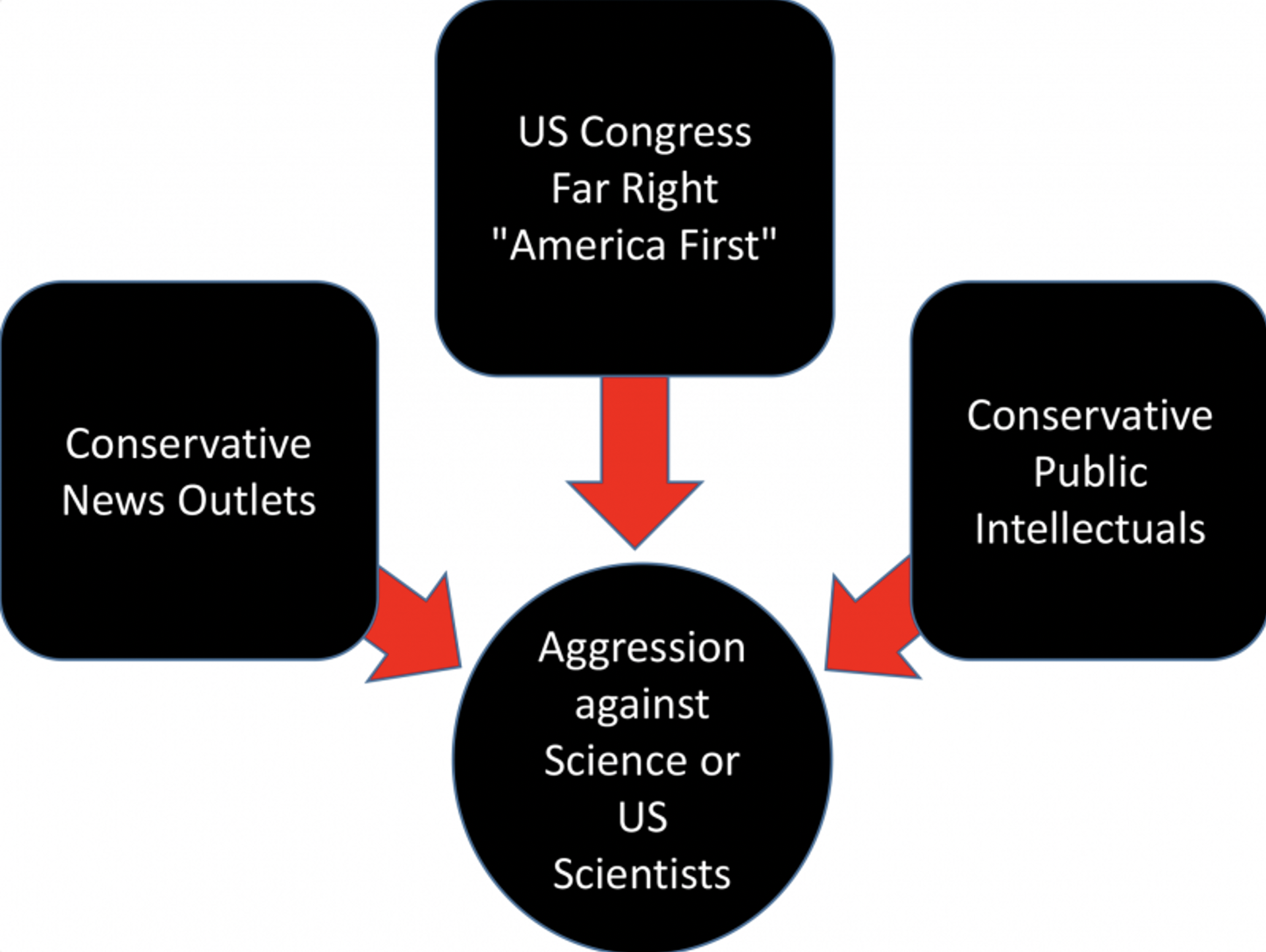
The atmosphere was akin to Hotel Rwanda—a beleaguered assemblage of innocents shivering behind thin walls, surrounded by a tempestuous sea where the dark forces of the anti-science movement lurked, ready to snuff out enlightenment at the first opportunity. Such was the recent annual meeting of America’s preeminent scientific body, the American Association for the Advancement of Science (AAAS).
The paranoia was on full display at the meeting’s final session, Doomed to Repeat—the title drawn, obviously, from Santayana’s famous aphorism. Karl Marx’s aphorism of history repeating as farce would have been more apt.
The evening kicked off with awards to exemplary individuals. Nagambal Shah, a statistician from Spelman College, was honored for mentorship (mostly toward women, keeping with the conference theme of diversity, equity, and inclusion). Abdelbagi Ismail (a Sudani) and Uma Shankar Singh (an Indian) were honored for their cooperative efforts to foster international cooperation in rice cultivation. Good for them: I’m glad they were recognized.
But the evening began to slip into farce with this year’s AAAS Award for Scientific Freedom and Responsibility. The awardee was Peter Hotez, who, readers may recall, was at the center of the NIH / EcoHealth Alliance coverup of the laboratory origins of the COVID-19 virus.

The AAAS congratulates Peter Hotez
[Related: “The Pampered Pets of Big Science”]
Hotez’s defense of scientific freedom and responsibility included saying that criticism of Anthony Fauci should be a federal hate crime. Never mind the coverup that involved Anthony Fauci, Peter Daszak, and Hotez himself. Hotez further beclowned himself by brazenly arguing that the problem was a conspiracy of the Right, a campaign of “mounting anti-science aggression,” the outlines of which Hotez described with a helpful graphic:

Peter Hotez’s outline of the vast anti-science conspiracy. From: Hotez PJ (2021). Mounting antiscience aggression in the United States. PLoS Biol 19(7): e3001369.
And so, under the image of the awardee’s rictus, began the evening’s panel discussion, which was predicated on the narrative that we are teetering on the threshold of anti-science fascism. We are back to the 1930s, with scientists under siege from the modern equivalents of Hitler, Stalin, and Mussolini (I’m not satirizing here, I hasten to add: these claims were actually made). Unless we counter the threat, we are doomed to repeat that unhappy history.
As evidence, the panel’s moderator, Holden Thorp (editor-in-chief of the Science family of journals), asked if the panelists were troubled by the “28 states that are banning diversity.” Naturally, all were very alarmed, as I suppose I would be if diversity was actually being banned. Thorp should have capitalized the term: those 28 states were resisting capital-D Diversity, a frankly racist quota system for hiring and promotion in the sciences.
The most passionate defense of capital-D Diversity (which earned her a hearty round of audience applause) came from Chanda Prescod-Weinstein, an astrophysicist at the University of New Hampshire, who is listed as the “63rd Black American Woman to earn a PhD in physics” (or maybe the 54th, which prompts the question, “Why not the first?”) She also identified herself to the audience as queer, which ticked another intersectionality box.
Judging from her record of publications and grants, she seems solid as a scientist. But she also fancies herself as a capital-D activist, which has made her a walking cautionary tale against scientism, of scientists who are successful in one field imagining that anything that comes out of their mouths is to be taken seriously. She takes very seriously, for example, the tautological, white-men-can’t-ever-win logic of Robin DiAngelo and Ibram X. Kendi, logic that would not get her very far in astronomy (e.g., black holes are holes that are black). In this, she is the obverse of William Shockley. Where Shockley wandered into minefields he could not conceive existed, Prescod-Weinstein sees minefields everywhere, even where they do not exist.
[Related: “Science: Are we getting what we’re paying for?”]
More tempered was Audra Wolfe, an accomplished historian of science, particularly of the post-WWII scientific competition between the United States and the USSR. Her book, Freedom’s Laboratory, explored how science became heavily politicized in both countries, driven by the political and patriotic rivalries of the Cold War. I have a great deal of sympathy with this argument, but there was a curious illogic about her remarks on the panel.
She argued, for example, that science has always been suffused with politics of one stripe or another. Critics of today’s strident politicization of science, fostered in large part by the AAAS itself, are therefore tilting at straw men, probably in service of some sinister political agenda (like “banning diversity”). If that’s so, then why should criticism of, say, COVID policy strike “terror” in the hearts of anyone, as it did for Peter Hotez? Isn’t it all politicized science-as-usual that we should just roll with? It doesn’t really add up.
The panel’s third member was Agustín Fuentes, a Princeton professor of that most dogma-driven of the life sciences, evolutionary biology. Like Prescod-Weinstein, Fuentes is a serious scientist. Also like Prescod-Weinstein, though, he is brought low by an overweening scientism, in his case imagining himself to be a serious historical scholar, who purports to demonstrate the “harm” that science has caused and that it must atone for (the “harm” usually modified by some alarmist adjective).
All he does, though, is mark himself as infected with a peculiar modern strain of moralistic narcissism. So, Charles Darwin might have been a great scientist (Fuentes’ “hero,” as he described Darwin), but he was a failed man because he did not anticipate Fuentes’ own elevated moral virtue: Darwin should have known better, as Jerry Coyne snidely puts it when he encounters such arguments.
Beyond that, Fuentes doesn’t offer much historical meat to chew. Compare, for example, Darwin and his cousin Francis Galton. Both were conventional Victorian gentlemen, both were similarly adventurous (Darwin on the HMS Beagle, Galton in central Africa), and both were intellectual giants (Galton arguably the more so). Yet, Darwin is Fuentes’ hero, while Galton is relegated to science’s waste bin. Why? Fuentes offered us no way to distinguish, other than which man conformed more closely to Fuentes’ own moral virtue.
There was a fourth panel member, Matthew Stanley, a New York University professor of history and philosophy of science. Unfortunately, the internet gods were angry that day, and his online appearance on the panel was garbled and rushed. Stanley’s contribution would have been interesting, as he is currently studying millenarian cults and how science has been co-opted into their end-of-the-world predictions.
Which seems oddly appropriate, given the doomsday mentality of the AAAS right now.
Image: Adobe Stock
Thanks for this romp through the AAAS’s combined annual jamboree and trauma-focused therapy session. Peter Hotez – ‘Man of the Pandemonium’, Scourge of the ‘Anti-Science Confederacy’, Long-time Worthy Recipient of NIAID Funding, Friend of The Wuhan Institute of Virology, and Champion of Ill-Advised Facial Hair – surely surpassed himself with the call to make criticism of Saint Anthony Fauci a federal hate crime. Peter stopped just short of demanding an Amendment to the Constitution regarding Scientific Blasphemy. As you indicate, it is obvious even to those without an appreciation of the scientific method that criminalising criticism of Science, and its practitioners, rather jars with Audra Wolfe’s recitation of its – and their – flaws and shortcomings. And surely the call for reparations due to those ‘damaged by Science’ – à la Agustin Fuentes – cannot be far off. Chanda Prescod-Weinstein may be a ‘serious’ scientist, but her ‘pronouncements’ outside her field of expertise are entertainingly risible. I feel there is room for a new organisation which would fully exploit the skill-sets of these doughty proponents of the Socially-Responsible (and Responsive) Science that has so far eluded us. But what to call it. I might have suggested the Church of Scientology. But that’s taken.
Where does the champion set up to best wield the stinging prod, and thus to turn the dull beast toward the light? While the subtle understanders, long view observers, and complexity addicts wander in a wilderness of fair-mindedness, the champion plants a flag on a high hill, preferably at a ‘magnetic’ pole of currency (or anti-currency) — a place of mutual attraction and gathering, where a ready quorum of vaguely like minds fall easily into assembly, sharing a lens through which an oppositional view takes crystal form and can be easily and acutely embraced.
So you have done, and effectively.
I’m reminded of George Bernard Shaw’s take on accurate observation — a leading mantra on my internal LinkedIn profile for years. …Though I have since grown cynical of even that.
Cheers!
“If that’s so, then why should criticism of, say, COVID policy strike “terror” in the hearts of anyone, as it did for Peter Hotez?”
Hotez tends to seem overwrought, for sure, if he is attacking mere criticism of particular scientists. But when the “criticism” crosses the line to death threats against scientists — as Fauci says it has for himself and his family — then it’s understandable that this might “strike terror” in their hearts. As might the vicious threats to jail Fauci coming from elements of the right. Of course, when it happens to presidents, they get Secret Service protection. And when the threat is prosecute the former president, it arouses vast indignation in certain circles.
How do you credibly transform the actions of the arguably crazy into a Republican war on science? Doing so, as Hotez has, is a cynical ploy that hardly makes him an icon of scientific freedom and responsibility. It also undercuts his claim of “terror.” Hence, the farce. Combine that with the shenanigans that are now being exposed (at which Hotez, Fauci et al were deeply implicated, and his claim of terror becomes still more farcical.
Because you guys have been encouraging the crazy. With the calls to lock up Fauci. (No, I don’t mean the crazies, I mean Elon Musk and Ted Cruz and perhaps Rand Paul.) With the claims or insinuations that Fauci engineered the virus and caused the deaths of millions of people. It is despicable and disgusting. So don’t give me this stuff about Peter Hotez.